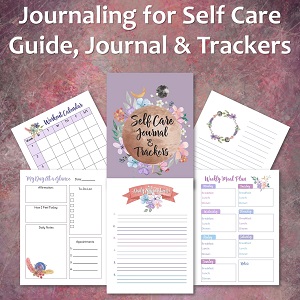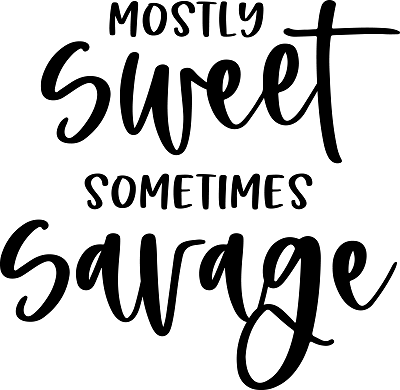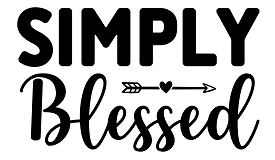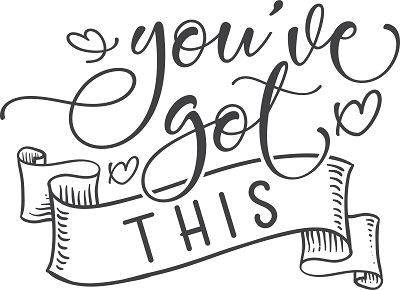 Being personally effective requires that you are aware of the resources you have at your disposal, both personally and professionally, to reach your goals. It means that you are aware of what your strengths and weaknesses are, and how to enhance your strengths and mitigate your weaknesses so that you can achieve important goals in all aspects of your life.
Being personally effective requires that you are aware of the resources you have at your disposal, both personally and professionally, to reach your goals. It means that you are aware of what your strengths and weaknesses are, and how to enhance your strengths and mitigate your weaknesses so that you can achieve important goals in all aspects of your life.
There are actions you can take to enhance your personal effectiveness so that you can get even more effective in life, achieving the goals that you set by using your talents, strengths, skills, energy, and time.
To accomplish your goals and become more personally effective, it’s important that you know who you are. It means that you can be positive despite challenges, set the right goals, communicate well with others, and know how to get organized to make it all doable.
Know Yourself
This requires some measure of introspection and the ability to think about yourself in an honest way. If you can truly weigh the truth about your strengths and weaknesses and how they help or hinder your ability to stay true to your values while also reaching your goals, you’ll be able to achieve a lot more in life.
Knowing yourself offers a lot of advantages, such as:
You’ll Be Happier
When you can be who you are without worrying about what others think, you will simply feel a lot happier. It’s hard to be someone you’re not. It feels wrong, it makes people unhappy, and it will never be right. When you can express yourself better due to knowing yourself, you’ll be more likely to get what you want and achieve the goals you set – mainly because the goals will align with your values.
You’ll Experience Less Conflict
Not only will you have less inner turmoil as you make choices, but when you are acting in concert with your values and who you are, it also feels right so you don’t have to give it as much thought. Anytime your brain is remunerating on a choice, it could be because it goes against your core self and your values in life. Or, it could be because you have not accepted yourself yet.
You’ll Be Better at Making Choices
When your decisions are made based on matching your values because you know who you are, then any decision become fast and simple. It either matches your values or it doesn’t. Additionally, even smaller choices will not seem as important because if it’s not a value choice it probably isn’t that important, and you can then make a fast choice. Y
ou probably won’t spend as much time trying to get dressed each morning when you know who you are. The choice of what to wear has very little serious effect in your life, after all.
You’ll Have More Self-Control
When you know who you are, making choices about what to eat and so on, and how you react in various situations, is going to become a lot easier. Some of your values will relate to your willpower or how you want others to see you.
For example, if someone you know is a high drama person but you are a low drama person, you know to just let go of whatever it is because you’re a low drama person and they’re not. So, with them, it’ll never stop if you don’t stop it.
You’ll Avoid Peer Pressure
When you know yourself, and you have your own values and personality, you’re not as tempted by peer pressure. You’re okay to say no to one more margarita because you know that you’ll be late tomorrow if you have one more. You’re also okay with saying no to drugs, sex, or even things that are good for you that you don’t have time for right now, because you know yourself and you know you can succeed without it.
You’ll Experience More Tolerance of Others
When you accept yourself the way you are, it also becomes easier to accept others the way they are. You’ll find that agreeing to disagree becomes an acceptable outcome in any debate about anything that doesn’t harm others. You’ll also be able to better differentiate when something is serious enough to take a stand and not important enough to bother.
You’ll Have a Better Life
The fact is, when you know who you are, you’ll stop struggling with the small things and even the big things. You’ll be able to look at whether something matches your values or not, and helps you reach your goals or not. And if it doesn’t, you know what to do. When you know yourself, it’ll make your life better overall in every single aspect.
Knowing yourself and staying true to yourself helps enhance your personal effectiveness because you can match any decision you need to make, and any task you need to accomplish, to those values. You can know almost immediately if you have a conflict or not, which is going to make your life that much better and more effective.
Practice Being Positive
Having a positive attitude is a key trait to improve if you want to be more effective and reach your goals faster. Being positive helps you deal with the ups and downs of life in a better way than getting caught up and stumped by negativity.
Being positive doesn’t mean that you’re a robot and you don’t feel emotion. It just means that with practice, you can come out of down times faster and work around down times to achieve the most in your life.
- Creates More Realistic Goals – When you are in a positive mindset, setting goals becomes a lot easier to do. You’ll be able to set more clear, realistic goals that match your value system with a clear plan to achieve success too.
- Assists with Focus and Concentration – If you have a positive mindset, you’re not ruminating about what could go wrong, or what went wrong, or what’s not good enough. Instead, you’re just focusing on getting your goals met with each step that you take – without judgment.
- Enhances Your Health – Studies show that happier people are healthier people, so there has to be a correlation. It makes sense, since anxiety can raise your blood pressure and cause damage to your organs over time.
- Alleviates Stress – When you can think positively about things that are happening instead of letting the negative thoughts in, you’re going to experience a lot less stress. When your teenager is learning to drive, instead of having a nervous breakdown about the situation (which is going to happen even if you’re negative about it), you can instead focus on the positive aspects such as their growing freedom and nearing adulthood, which is exciting for them.
- Improves Relationships – No one likes being around people who are negative all the time. Therefore, it makes sense that if you’re more positive, your relationships are all going to be much better. Your partner will want to be around you, which will make you want to be around them, and the same can be said for your kids, friends, and work colleagues.
- Builds Confidence – Being positive also builds your confidence level. When you can realistically state that you’re good at doing something, and then trust that you can get it done, the confidence will show through in your words and deeds.
- Makes You Success Focused – Instead of being focused on potential disaster and failure, when you are positivity focused you’re also success focused. When you are focused on success, not much more can happen outside of success. It’s not a secret that taking forward positive action on something leads to a result that is successful.
You see the benefits of positive thinking. So how do you increase your ability to think positive in the first place? Basically, it takes practice, but you can help yourself by trying some of the following activities:
- Meditation and/or Prayer – Mediating or prayer (or both) are scientifically shown to increase positivity in people who do it, if when you do it you’re focused on either nothing or something positive. You can’t focus on the negative during your practice, or that’s what you’ll keep thinking about.
- Journal Writing – Keeping a gratitude journal instead of a diary that talks about everything good and bad can go far in training your brain to pick out the good things from your day. You don’t have to write a long story. You can simply write down three things a day that you’re grateful for, and your mind will remember the rest instantly as you write down the bullet points.
- Play More – Get outside and play. Run around with a dog, or your friends playing frisbee, or flying a kite. Doing fun things, especially outside, can enhance your happiness level exponentially. Having down time in general will too, but getting out in nature is going to help you even more.
- Surround Yourself – Find positive people, positive music, positive books, positive TV shows, and just immerse yourself in it. Fill those spaces with everything good, which will leave less space for negativity. You’re not going to change the world watching opinion news. Stay informed, but you don’t need other people’s negative opinions to do it.
When you’re more positive, you tend to focus more on the good things in life that you’re grateful for than the bad things. When you do that, you tend to attract more positive events and people into your life, which creates a cycle of happiness and success. The importance of positivity in thinking and action cannot be overstated.
Set SMART Goals
One of the most important things you can learn on your path to being more personally effective is how to set goals properly. So many people set goals, but they’re not doing it in a manner that helps them achieve results. Let’s go over how to set goals effectively.
Every goal you set should almost map out its result for you just by setting it. This is going to make achieving it so much easier. It all starts with learning to set SMART goals.
SMART is an acronym that stands for various things depending on who you talk to. But for this purpose, we’ll give SMART the following meaning.
Goal example: “Write 1000 words each day for the next 30 days between the hours of 1 pm and 3 pm to achieve 30,000 words by the end of October.”
- S. Specific – This goal describes in specifics what will be done each day for 30 days, and how.
- M. Measurable – By using 1000 and 30,000, and spelling out when the writing will happen, we’re giving a way to measure progress.
- A. Attainable – It is possible to write 1000 words each day during that time because someone will be watching the kids, all chores will be done, and the writer can typically write 450 words per 30 minutes.
- R. Relevant – This is relevant because I am writing a book that needs 30,000 words.
- T. Timely – It’s timely because it has a time limit of 30 days.
As you can see, the practice of setting SMART goals will increase the likelihood of success – if only because the process maps out the how.
If success is your plan with anything in life, from home to work, you need to get good at setting goals. Using SMART goals helps the process and makes it clear. But there are a few other factors that go into goal setting.
- Set Goals that Match Your Life Priorities – It’s important that any goals you make represent priorities you’ve identified in your life. How does the goal motivate you and advance your values and priorities? When you can answer that question you’re more likely to stick to the goal and succeed.
- Put Your Goals in Writing – Put it in writing as well as schedule it in your calendar. When you’ve written down your SMART goals, use that as the beginning of your plan. Start with the deadline and work your way back to today in the calendar scheduling, prioritizing each step of the way.
- Plan for Achieving Your Goals – When you put something in your calendar, know how you’re going to stick to it. Is there anything else in the way of that time frame? Are the kids home? Is your partner expecting something from you besides your goal? Be realistic about this so that you can overcome the obstacles that could exist.
- Don’t Give Up – A big factor in someone’s ability to achieve a goal, especially a long-term one, is the ability to persevere. Whether it’s publishing a book, losing weight, learning something new, or meeting a work deadline, the ability to stick to what you set out to do plays a huge role in whether you’ll be successful or not.
Goal setting is going to change your life. It doesn’t matter if it’s something trivial or something world changing. Setting goals, planning how you’ll reach that goal, then implementing your plan, is going to make a huge difference in how you see yourself and the world.
Improve Your Communication Skills
Being an effective communicator can make a large impact on your life and the lives of those around you. Communicating effectively enhances your productivity, improves relationships, and helps you explain your values and ideas to others. If you want to be at the top of your game, improving your communication skills should be a priority.
Three Types of Communication Skills
- Verbal – This is when you listen to a person to understand the meaning of the speaker.
- Written – This is when you read a message to understand the meaning of the writer.
- Non-verbal – This is when you observe a person and infer meaning based on their body language.
If you want to become an excellent communicator, it’s important to pay attention to what you say, how you say it, as well as listen and read for meaning of the person sending the message. This can take a lot of practice as well as introspection, but you can improve.
When you do improve your communication skills, you’re going to experience a lot more success and be a lot more personally effective in life all around. This is because it’s easier to get the results you desire (or your boss desires) if you understand each other.
Learn about Non-Verbal Communication
Sometimes we are giving off information to those we are communicating with that we don’t mean. But if you become aware of how humans receive non-verbal communication signals, you can change your body language so that you are communicating better with your intended message. You can practice so that you appear more confident if you take on the right posture of someone who is confident. What’s more, you’ll feel more confident when you do it.
Become More Repetitive
If you’re the sender of the information, you need to practice repeating yourself in a way that isn’t annoying. That’s why most of the time when you write a paper or tell a speech, you will, “tell them what you’re going to tell them, tell them, then wrap it up and tell them again”. Make sure all your content, whether verbal or written, follows that formula so that they take away more and understand more.
Ask for Feedback
To ensure that you’re understood, ask your audience for feedback. Ask them what they think you told them so that you can correct any miscommunications and misunderstandings right away. If you are receiving a message from someone, ensure that you understand by repeating back what you believe they told you in your own words.
Ask them if that’s right. Don’t worry about bothering people with this. It’s important for complete understanding and is the sign of a good communicator to ask questions for clarification.
Be a Good Listener
It’s amazing but the person most remembered at any event, whether family focused or business focused, is the person who demonstrated good listening skills. It’s not the person who talked a lot or the life of the party; it’s the person who showed the most compassion and understanding through listening.
Always listen to what others have to say first, get clarification and understanding with follow-up questions, and then and only then should you speak, providing thoughtful answers and information that show you listened.
If you want to improve your communication skills, start with these pointers. Being an effective communicator is a skill that can be learned. Join a Toastmaster’s Club in your area. There are also clubs on Meetup.com that are helpful. Or, start your own communication skills club so that you help each other become better communicators.
Get Organized
One sure-fire way to improve your effectiveness is to increase your organization. When you get organized, you save time, increase your earning power, and reduce stress. When you are more organized, you can be more effective in every aspect of your life. Think about the time wasted searching for things due to lack of organization. Just taking that time back alone can do wonders for your personal effectiveness.
Get Rid of Clutter
The first thing you have to do to get organized is rid your life of clutter. Part of the reason so many people have clutter is that they have too much stuff without a system to store it and use it properly. Start slowly with one room or drawer at a time (including your office). Start by getting everything out in the open, put like with like, get rid of things you never use, and then find the right tools to keep it organized so that you can easily use it.
Only Buy Purposeful Things
Now that you’ve decluttered, stop buying things that have no use and no place to live. If you already have 20 scarves, you don’t need another. Make the rule that if you bring something in, something you have has to leave – especially if you already have things that fill that purpose.
Prioritize
Outside of physical clutter, you also have mental clutter due to all the things you need to do in a day. Make a priority list of the things you have to do each day, week, month, quarterly and so forth. Put them in order of importance so that you know what’s a priority and what can be pushed down the list.
Calendarize
Get everything down that you need to do in your calendar. It doesn’t matter if it’s for work or it’s personal. If it’s lunch with your spouse or playing a board game with the kiddos, it needs to be in the calendar so that you can organize it and really know what you are doing when you take on one more thing.
If it’s all in there, from eating lunch with your best friend to buying a gift for your seven-year-old, you’ll have a true picture of your life when you look at that calendar.
Systemize and Automate
Many things you do right now can be systemized. You can preschedule birthday card and gift giving today with services, for up to a year in advance. You can make it a system (habit) to touch all your mail only once. Get the mail, then organize it into the trash or your file system for processing.
Being personally effective encompasses a large skill set, all of which can be built upon and improved. Even if you think you were born with the messy gene, you can create systems and improvements in your organization so that you can be even more effective in all aspects of your life.
Getting Started
The actions you can take to enhance your personal effectiveness are not difficult to implement. Start with the one that troubles you the most to experience the biggest change and benefit in increasing your personal effectiveness.
The five actions you can take to enhance your personal effectiveness are easy to do and straightforward. Pick one and get started on your new path today.
- Know yourself
- Practice positivity
- Get good at goal setting
- Improve your communication skills
- Get organized
Which one are you going to start with? Personal development is one of the best ways that you can learn to enhance your life and achieve all your goals. But you have to be honest with yourself about who you are, be willing to change, and understand that it’s a lifelong process.




